Digital inclusion: Bridging the gap for Singaporeans in the digital age
BY DBS, 14 JULY 2023
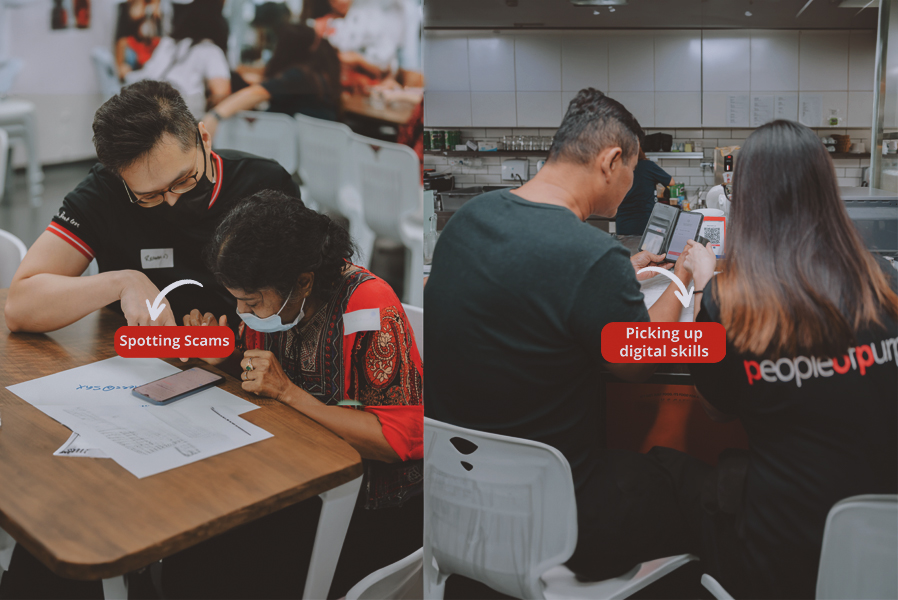
Digital technologies are evolving and increasing, it is now more critical than ever to foster a more equitable and inclusive society, in which no one is left behind
What does digital inclusion entail and why is it significant?
Digital inclusion ensures everyone has equal access to communication and information technologies, and the opportunities that arise from using these tools.
Since the Covid-19 pandemic, digitalisation has been a key driver in Southeast Asia’s economic growth. When nations closed their borders, business – from small to large – accelerated their digitalisation efforts to stay on top of customers’ minds. In 2020, e-commerce in the region grew by 63%, according to a 2020 report by Google, Temasek and Bain & Company. The study also predicts that the region’s internet economy is expected to be worth more than USD 300 billion by 2025.
While Southeast Asia has the third highest number of Internet users in the world, a 2021 ASEAN Digital Integration Index Report indicates that a digital divide exists across less developed nations. The study also suggests that such a divide is more apparent in rural and low-income communities where individuals are not well-equipped in data protection, cybersecurity, and e-payment skills. This can deepen inequalities that already exist within communities such as social exclusion, economic disadvantages, vulnerabilities to scams, and more.

How to achieve digital inclusion?
Access and availability
Communities with good access to the internet can stay on top of current affairs in their local communities and across the globe. For instance, during the Covid-19 lockdown, those with online access get the latest updates on health protocols, transfer money to family and friends abroad, and work in the comfort of their homes.
Better access to internet services can also lead to more job opportunities as individuals can upskill and develop in-demand skills for an increasingly digital economy. For example, DBS Foundation-supported social enterprise Komerce empowers youths from rural Indonesia to achieve social mobility with digital literacy and e-commerce training.
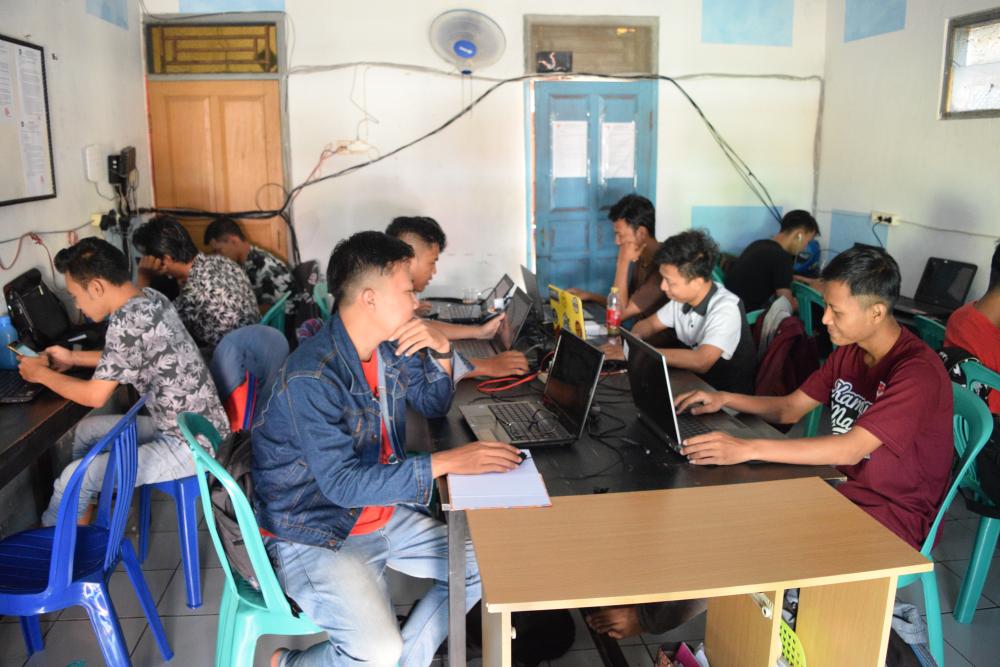
Participation
While Singapore takes the top spot in digital inclusiveness, gaps still exist among different age and income groups, especially in the areas of digital skills and the use of technology.
To accelerate digital inclusions efforts in Singapore, the government has rolled out nation-wide digital literacy programmes such as:
- Seniors Go Digital: Infocomm Media Development Authority (IMDA) has engaged 210,000 seniors to cultivate digital skills in using messaging apps, accessing Government e-services, and navigating e-Payment tools.
- Enable IT Programme: Introduced in 2014, the programme promotes the adoption of assistive technologies to encourage self-sufficiency among persons with disabilities.
- Hawkers Go Digital: Since 2021, the SG Digital Office and National Environment Agency has empowered hawkers to adopt digital payment and online ordering services.
However, based on a 2021 study by Roland Berger, there are still gaps to be filled in the nation’s digital inclusion efforts among certain segments in society. For instance, internet enabled devices are not user-friendly to people with disabilities and may delay their adoption of digital payments and online services. Meanwhile, the elderly and less literate hawkers are hesitant to adopt digital payments due to a lack of confidence in technology systems.
To advance Singapore's digital inclusion efforts, the study recommends the public and private sectors to invest in public spaces for digital literacy classes and design customised digital literacy curriculums for different needs.
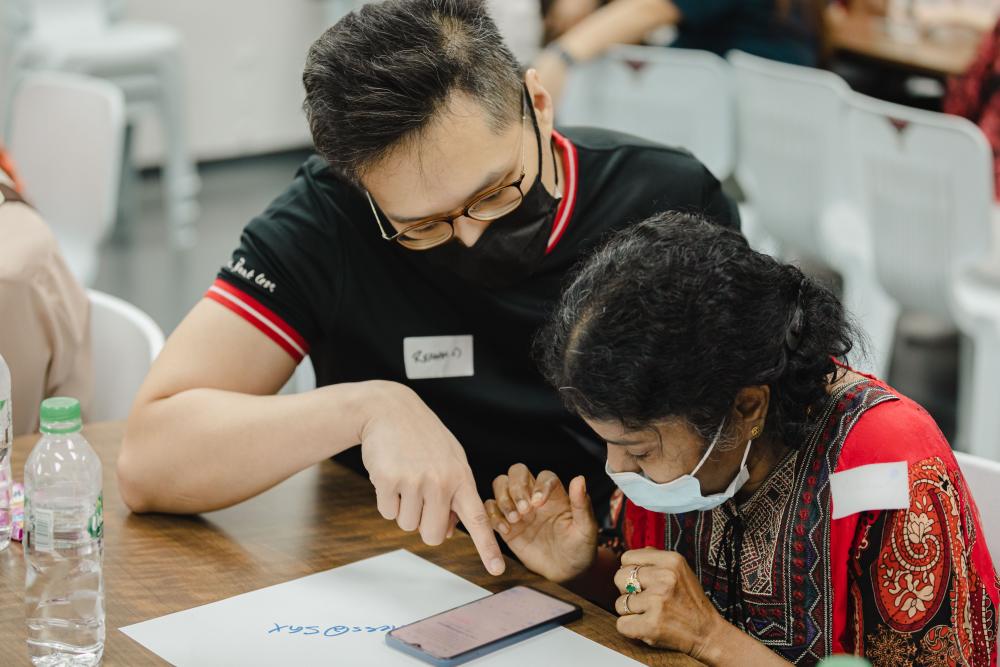
DBS employee volunteer Reagan Foo said the most common question he gets asked is how to create a password for digital services.
In 2022, DBS entered a strategic collaboration with Singapore’s Infocomm Media Development Authority (IMDA) to support the national Digital for life movement and bolster digital inclusion in the country.
The partnership builds on DBS’ expertise and ongoing efforts in empowering customers with digital habits at bank branches and preparing marginalised communities such as special education students, hawkers, and low-income seniors for a digital future.
DBS is providing multi-pronged support by:
- Contributing SGD 1 million to the Digital for Life Fund which provides grants to individuals and non-profit organisations to drive digital inclusion projects and activities in Singapore.
- Mobilising at least 2,500 employees, with the support of community partners, to run digital workshops across the island - including DBS and POSB branches - to help participants understand digital banking and e-payments, as well as learn how to spot and avoid scams.
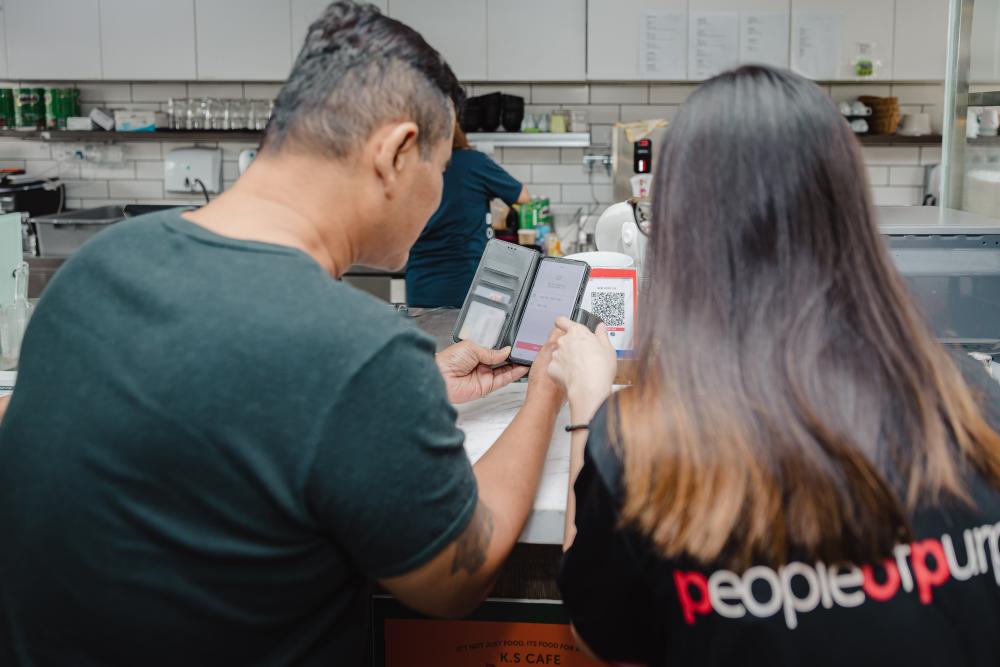
The bank's employees have been volunteering in numerous digital literacy workshops across Singapore such as the DBS Foundation x New Hope Community Services "Let's Go Digital" event. More than 60 beneficiaries participated in hands-on training sessions with DBS employees to learn how to navigate daily-use apps such as government e-services and digital payment apps such as DBS PayLah!. They also joined cybersecurity tutorials to spot and avoid online scams.
DBS and POSB branch staff across the country have also been conducting digital literacy classes for seniors after the bank closes on Saturday. These one-to-one practical sessions with our tech-savvy staff give seniors the opportunity to ask some of their burning questions on navigating digital payment apps and gain stronger cybersecurity knowledge.
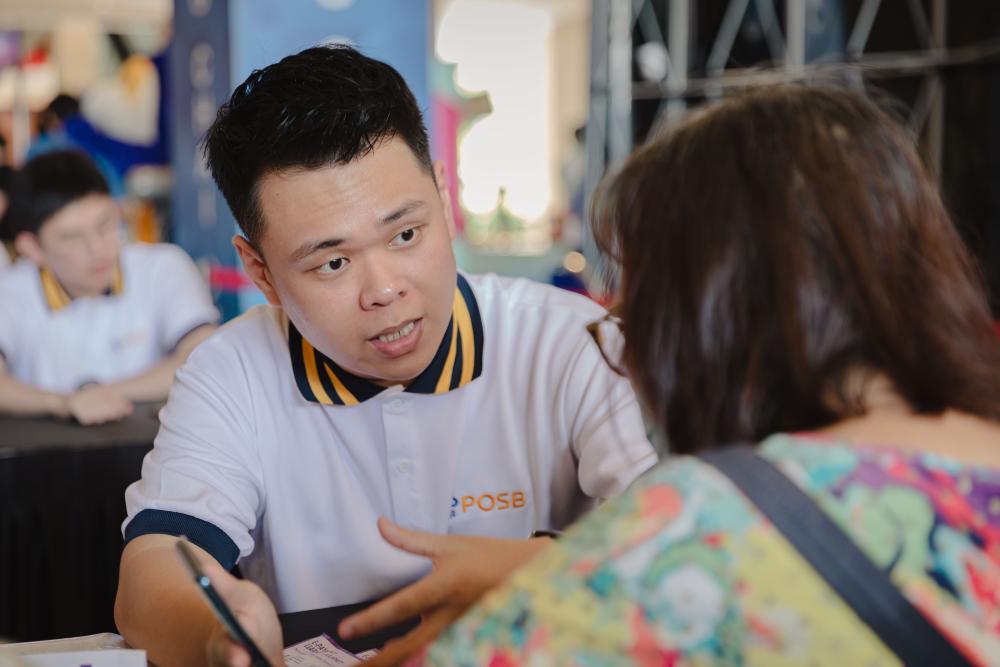
For Clement Lim, Senior Wealth Planning Manager at the DBS NEX branch, guiding seniors how to navigate mobile apps such as government e-services and DBS Paylah! during and after work hours is one of the most fulfilling parts about his job.
The 29-year-old also volunteers to teach seniors digital literacy skills over the weekend at DBS/POSB-organised workshops across Singapore.
“I treat these seniors like my own grandparents. Sometimes they come to the bank branch frustrated because they do not have anyone to guide them on using mobile apps, especially e-payment ones. I will first calm them down, guide them how to use the app step-by-step, and then give them the freedom to decide whether they want to slowly transition into cashless payments”.
- Clement Lim, Senior Wealth Planning Manager, DBS.
Learn more about DBS' commitment to drive digital inclusion in Singapore here.